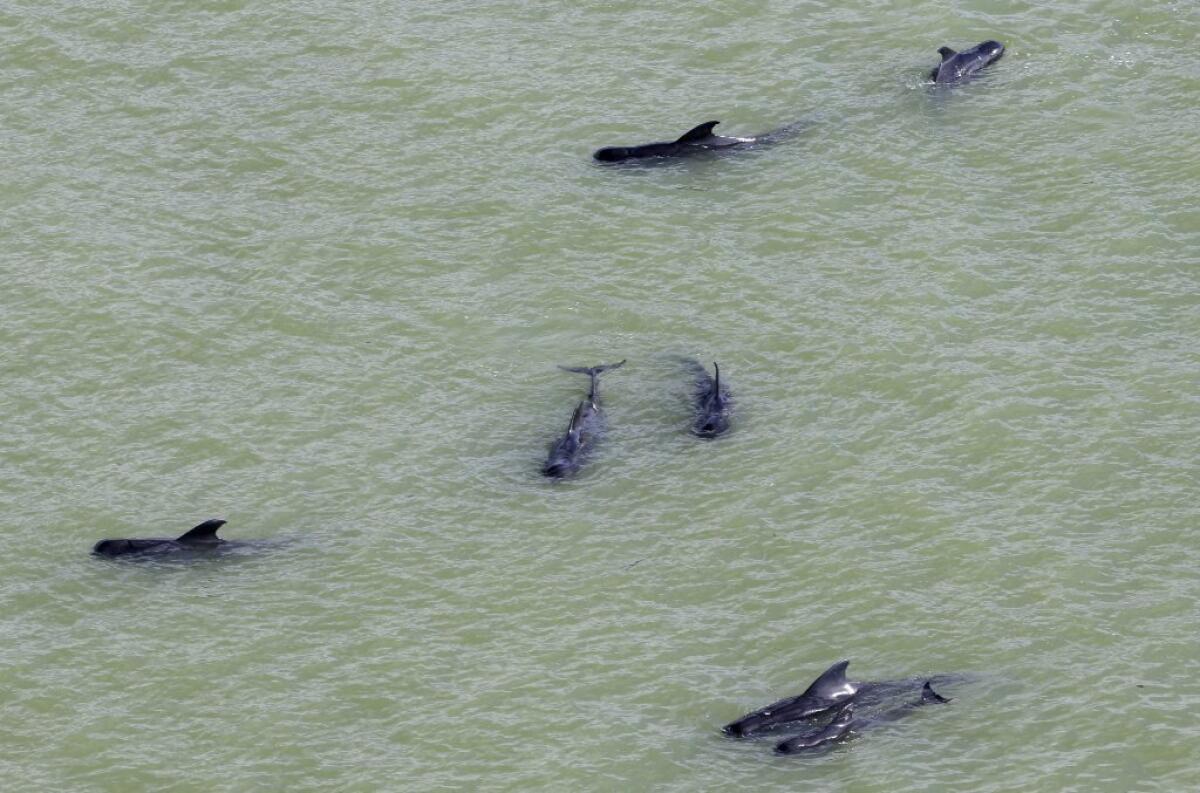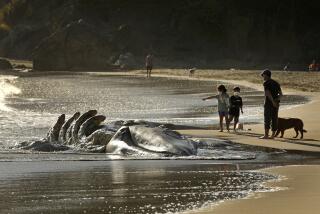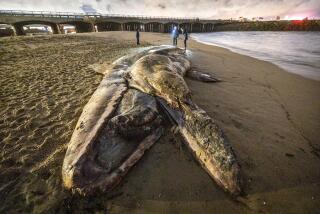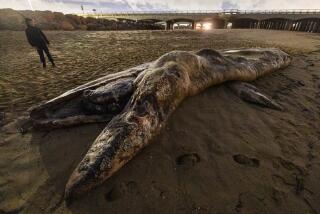11 more pilot whales die in Florida; outlook ‘bleak’ for survivors

- Share via
Eleven more pilot whales have been found dead in the lower Florida Keys days after their pod became stranded in shallow waters along the coast, officials said Sunday, calling the outlook “bleak” for 29 surviving whales that remain unaccounted for.
A rescue team was en route and scientists were set to arrive Monday to determine a cause of death for the highly social creatures, the National Oceanic and Atmospheric Administration’s Fisheries Service said in a Sunday statement.
The news marked a setback to officials’ hopes that the whales had traveled safely back to deep waters after the saga began last week, when 11 other whales of a 50-member pod died after wandering into the shallow waters of the Florida Everglades. (Four of those 11 were euthanized because they were too ill to save.)
Pilot whales are highly social and prone to mass strandings because they are reluctant to break away from their podmates even when in trouble, experts say.
After the discovery of the whales trying to swim ashore Tuesday, officials had struggled to herd them out of the Everglades and back to open waters before most of the surviving whales vanished Friday.
Officials discovered the newly stranded whales in Snipe Point in the Florida Keys, about 15 miles from Key West and more than 50 miles from where the whales were originally beached in the Seminole Point/Plover Key area of the Everglades.
“We believe these are part of the original pod of 51 stranded pilot whales,” officials said in a statement on the Fisheries Service website, adding that scientists will investigate whether the whales succumbed to disease, biotoxins or possible sonar trauma from U.S. Navy traffic.
Officials said 29 pilot whales from the pod were last seen alive Friday and considered missing.
“Given our knowledge of past mass pilot whales strandings, the outlook for finding the remaining whales alive is bleak,” the statement said.
More to Read
Sign up for Essential California
The most important California stories and recommendations in your inbox every morning.
You may occasionally receive promotional content from the Los Angeles Times.











